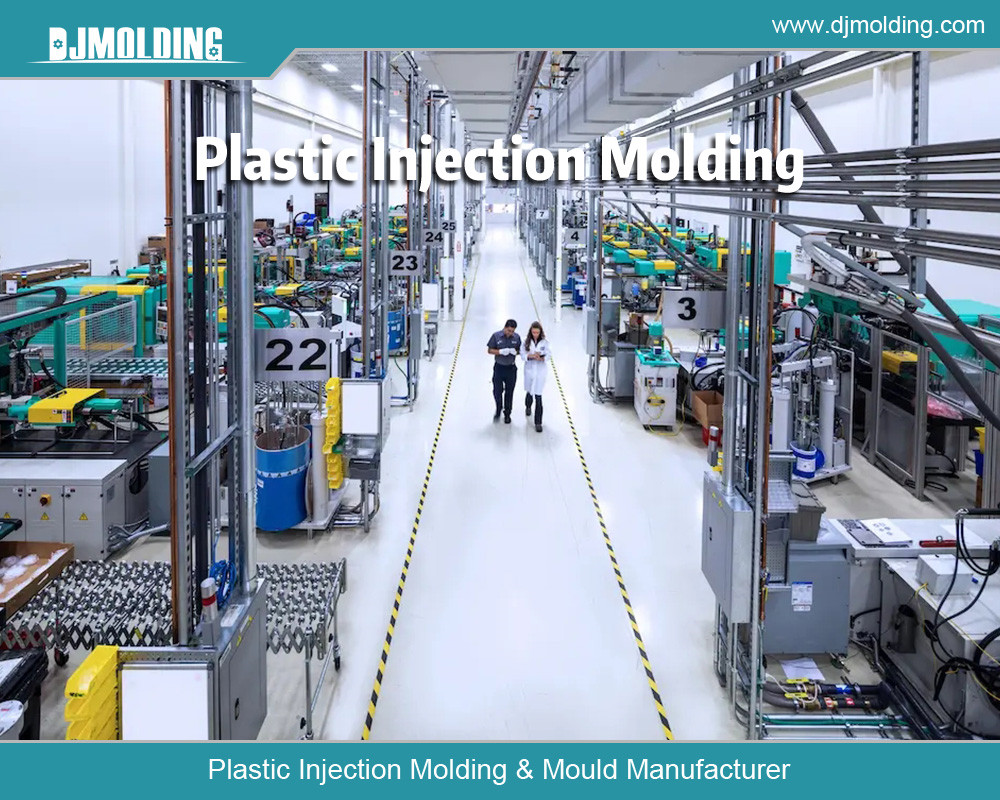Cutting-edge Solutions using Custom Injection Shaping
In the current fast-changing manufacturing landscape, organizations are continuously seeking cutting-edge solutions to boost efficiency and minimize costs. A method that has gained significant traction is bespoke injection molding. This flexible process not only allows for the production of top-notch plastic components but also provides businesses with the ability to create products customized to their specific needs and wants.
Custom injection molding provides a wide range of advantages that make it an appealing choice for manufacturers across multiple industries. From cutting down on waste and shortening production time to improving design possibilities, this technique is redefining how products are created and produced. By leveraging the power of custom injection molding, companies can realize their unique visions to life while experiencing improved operational efficiencies.
Benefits of Custom Injection Molding

Custom injection molding provides a range of advantages that make it an appealing option for manufacturers across different industries. One of the primary benefits is the ability to produce complex shapes and designs that would be difficult or impossible to achieve through traditional manufacturing methods. This versatility enables companies to innovate and design unique products that meet particular market demands, giving them a market edge.
Another major advantage is the efficiency in production that tailored injection molding provides. This process allows for high-volume manufacturing with uniform quality and minimal waste. Once the mold is created, each cycle can manufacture a large number of uniform parts quickly, lowering labor and material costs. This effectiveness not only boosts profitability but also reduces lead times, allowing companies to react swiftly to customer needs.
Lastly, tailored injection molding can lead to enhanced material performance. By choosing the right polymers and materials for the injection molding process, businesses can customize their products to exhibit favorable properties such as strength, adaptability, and resistance to external factors. This personalization capability ensures that the final products not only meet functional requirements but also align with eco-friendly goals, attracting to a market increasingly conscious of environmental impact.
Uses in Different Sectors
Custom injection molding serves diverse industries, significantly transforming product design and manufacturing processes. In the vehicle industry, it allows for the creation of intricate components, such as dashboards, trim, and brackets, which ensures elevated strength and precision. Manufacturers benefit from the ability to produce light parts that enhance fuel efficiency while meeting stringent safety regulations.
In electronic devices, bespoke injectable molding plays a vital part by enabling the creation of complex housings and covers tailored to specific specifications. This methodology ensures that products not only appear attractive but also provide protection against environmental factors. The rapidity of manufacturing helps companies stay ahead of dynamic market demands, producing cutting-edge devices quickly.
The medical sector also reaps the benefits of custom injection forming, where exactness and cleanliness are paramount. Medical devices, from syringes to complex medical tools, require exact standards to ensure functionality and safety. Custom forming facilitates the production of sterilizable components that preserve the integrity required for medical uses, thus enhancing medical innovations.
Upcoming Trends in Injection Molding
The future of bespoke injection molding is integrally linked to advancements in tech, particularly in digital manufacturing and automation. As businesses seek to enhance productivity and lower production costs, the adoption of smart technologies like the Internet of Things and artificial intelligence will have a crucial role. These innovations will enable real-time monitoring and information analysis, allowing producers to optimize processes, forecast maintenance needs, and guarantee higher consistency in product quality.
Sustainability is also becoming a key focus in the sector. With growing concerns about environmental effects, manufacturers are increasingly exploring sustainable materials and methods. Compostable plastics and recycled content are becoming traction as alternatives to conventional materials. Additionally, the creation of energy-efficient machinery will help minimize the carbon footprint related to custom injection molding, consistent with global sustainability goals and consumer preferences for more sustainable products.
Lastly, the emergence of customization in retail products is shaping custom injection molding practices. As clients demand distinct and tailored products, manufacturers are adopting agile production methods to accommodate minimal production runs and customized designs. This movement is transforming how companies approach product development, enabling more creative solutions that meet particular consumer needs while retaining the benefits of batch production. Enhanced design capabilities and faster prototyping are essential in this evolving landscape, ensuring custom injection molding remains a critical part of the manufacturing process.